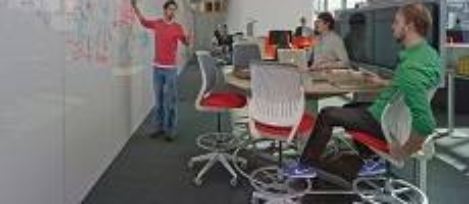February 11, 2015
BIFM and CIPD launch Workplace Conversation to discuss future of work
 The BIFM and the CIPD have launched a joint initiative that aims to examine the evolution of the working environment and the future of work. The Workplace Conversation, project, which was announced by BIFM Chief Executive, Gareth Tancred, at the Workplace Futures conference yesterday, builds on the agreement made between the two bodies last year to collaborate on ways the ‘custodians of two of the most important drivers of business performance – people and place’ could build bridges between the two disciplines. The project will aim to identify and define the challenges, ideas and opportunities on how work is enabled, both now and in the future, and will explore topics such as the emergence of new technologies, economic forces and flexible working alternatives, and their impact on business performance and the way people work.
The BIFM and the CIPD have launched a joint initiative that aims to examine the evolution of the working environment and the future of work. The Workplace Conversation, project, which was announced by BIFM Chief Executive, Gareth Tancred, at the Workplace Futures conference yesterday, builds on the agreement made between the two bodies last year to collaborate on ways the ‘custodians of two of the most important drivers of business performance – people and place’ could build bridges between the two disciplines. The project will aim to identify and define the challenges, ideas and opportunities on how work is enabled, both now and in the future, and will explore topics such as the emergence of new technologies, economic forces and flexible working alternatives, and their impact on business performance and the way people work.


























February 9, 2015
The open plan remains an important office design element
by Paul Goodchild • Comment, Facilities management, Workplace design
(more…)